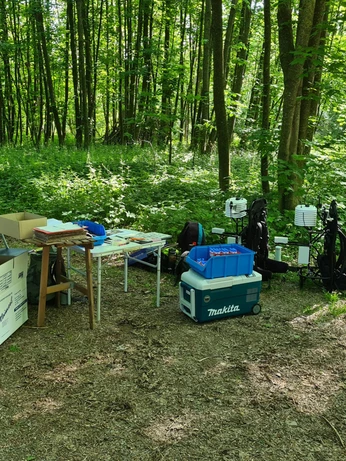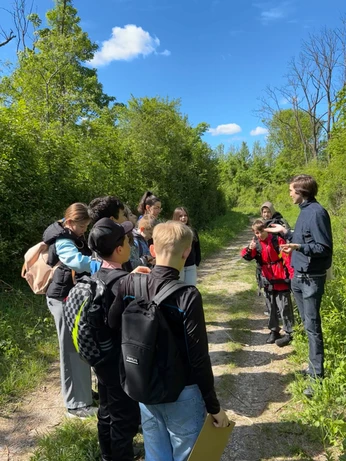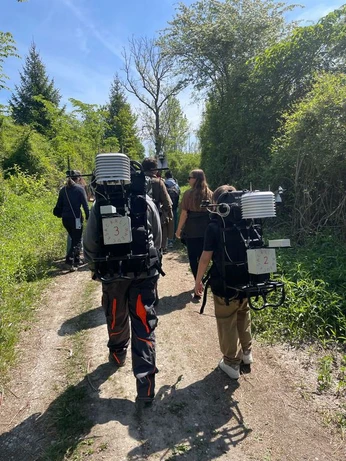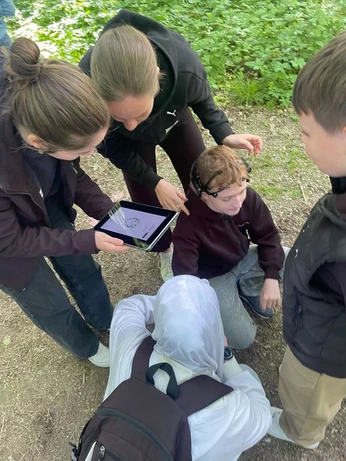As part of the scientific research project A-DUR, the pupils explored the floodplain forest near Garching in May – and became little researchers themselves. The focus was on the question of how different forest environments affect concentration, feelings of stress and general well-being. The sixth and seventh grade students gained exciting insights into modern environmental research.
Common data collection in the floodplain forest
During an approximately four-kilometre walk through the floodplain forest, the young people were involved in various measurements – including heart rate, temperature perception and subjective stress levels. Modern measuring instruments such as heart rate monitors, EEG headbands and climate backpacks were used. Voluntary saliva samples to determine cortisol levels were also taken at defined resting points in order to obtain quantitative measurements of stress levels.
The pupils not only gained exciting insights into the natural sciences, but were also actively involved in the study. They learned how data collection is planned and implemented, why control groups are important and how subjective perceptions can be connected with objective measurements. This promoted both an understanding of scientific work and an interest in ecological contexts and health research.
Identifying animals and plants in the floodplain forest
In addition to the scientific surveys, there was plenty of time to experience the forest for themselves. The young people explored the floodplain landscape in a playful way, observed animals, compared tree species and reflected together on how being in the countryside affected their personal feelings. The small groups also used apps to identify plants and animals, thus contributing to the citizen science survey in the A-DUR project.
The feedback was entirely positive: teachers and pupils alike praised the combination of science, exercise and experiencing nature. Many were surprised how relaxing it was to spend time in the nature – and how much fun scientific research can be.
About the A-DUR research project
The A-DUR project is part of the nationwide joint REGULUS project and is funded by the Federal Ministry of Research, Technology and Space as part of the “Research for Sustainability” strategy. One of its aims is to investigate the positive effects of close-to-nature forests on climate, health and recreation. Such project days also take place at other schools.
Sub-project 04 “Climate Impact, Recreation and Health”, headed by Prof. Annette Menzel (Professorship of Ecoclimatology at TUM School of Life Sciences), was responsible for the implementation. On site, doctoral student Sophie Feiertag (at the Chair of Ecoclimatology) and doctoral student Daniel Scheller (Associate Professorship of Didactics in Sport and Health at TUM) supervised the school classes. They were supported by project partner Julie Mathes (BUND Naturschutz), project coordinator Dr. Anna-Katharina Eisen (Weihenstephan Forestry Center), dedicated research assistants and doctoral students Clemens Detsch (Forest and Agroforestry Systems, TUM School of Life Sciences) and Korbinian Tartler (Renaturation Ecology, TUM School of Life Sciences).
More information: Research project A-DUR – Revitalized floodplain forests: dynamism and resilience in the spirit of multifunctionality (Weihenstephan Forestry Center) - please switch to English version there



